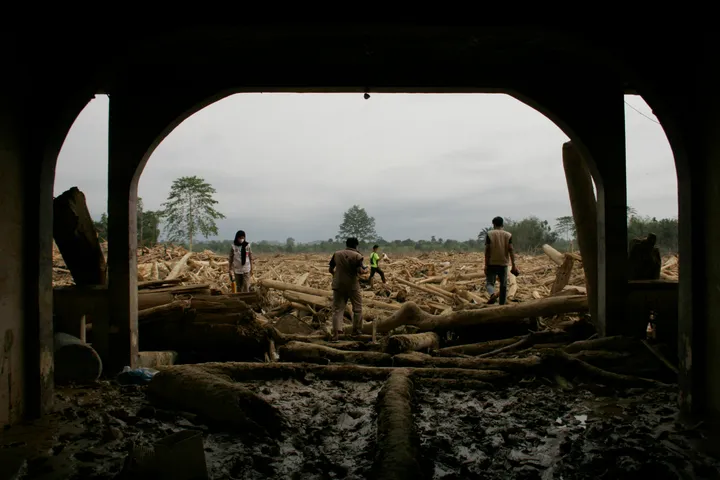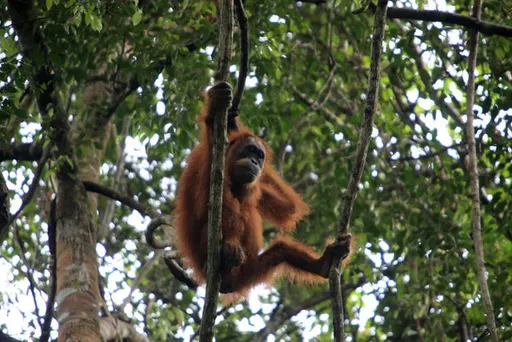The Baghdad-based Iraqi central government said on Sunday that PKK militants were among the Kurdish Regional Government's forces in the disputed oil province of Kirkuk.
Baghdad said the move amounted to a "declaration of war" on its forces, which have been engaged in a standoff with the KRG's Peshmerga fighters over the ethnically-mixed province.
The National Security Council headed by Iraqi Prime Minister Haider Al Abadi said it viewed as a "dangerous escalation" and a "declaration of war" the presence of "fighters not belonging to the regular security forces in Kirkuk," including terrorists from PKK.
In a statement published after a meeting in Baghdad, which was attended by top military and security commanders, the government said it would seek to impose its authority over Kirkuk and other disputed areas.
While the KRG in northern Iraq is an autonomous entity within the country, Kirkuk province had been designated outside of its jurisdiction.
The KRG's forces occupied the region in 2014 when the Iraqi government's forces collapsed in the face of an onslaught from Daesh.
Kirkuk and other disputed territories were included in the KRG's non-binding referendum on independence from Iraq last month.
KRG rejects Baghdad's demands
Political leaders in the KRG rejected on Sunday the Iraqi government demand that it cancels the outcome last month's independence referendum.
The Iraqi government had made the demand as a precondition for talks to resolve the dispute.
KRG leaders who met to discuss the crisis in the northern Iraqi town of Dokan renewed their offer to "resolve peacefully" the crisis with Baghdad, KRG President Masoud Barzani's aide, Hemin Hawrami, said on Twitter.
The meeting was attended by Barzani, Iraqi President Fuad Masum, and Hero Talabani, the wife of Jalal Talabani, an Iraqi Kurdish leader who died earlier this month.
They also rejected what they described as "military threats" from Iraqi forces against the KRG's Peshmerga fighters, and pledged to defend KRG-held territory in case of an attack.
KRG officials also denied that PKK militants were present in Kirkuk though one said that sympathisers of the group were. "There are no PKK forces in Kirkuk, but there are some volunteers who sympathise with the PKK," said General Jabar Yawer, secretary general of the Peshmerga Ministry.
The PKK, considered to be a terrorist organisation by neighbouring Turkey as well as the United States and the European Union, is based in the Qandil Mountains of northern Iraq but has mainly directed its attacks at Turkey over a period of four decades.
Its militants and affiliated groups have however been actively involved in conflicts in Iraq, Syria and Iran.
Kirkuk dispute
The KRG's Peshmerga fighters rejected a warning from an Iraqi paramilitary force to withdraw from a strategic junction south of Kirkuk, which controls the access to some of the region's main oilfields, a KRG security official told Reuters on Sunday.
Ali Al Dabbagh, a former spokesman for the Iraqi government, told TRT World that he isn't surprised the that the KRG won't back down on its claim to Kirkuk.
Neighbouring countries Iran and Turkey back Baghdad and have repeatedly expressed commitment to Iraq's territorial integrity and sovereignty.
Barzani's opponents have accused him of seeking to give himself increased powers through the vote, saying he should have accepted a UN-backed plan to postpone the referendum in favour of negotiations with Baghdad.
Iran border spat
Iran on Sunday denied reports that Tehran had closed a border crossing with the KRG in response to its independence referendum last month, the Iranian Students' News Agency (ISNA) reported.
"As we announced earlier, we blocked our airspace to the Kurdish region on a request from the central government of Iraq, and as far as I know, nothing new has happened in this area," ISNA quoted Iranian Foreign Ministry spokesman Bahram Qassemi as saying.
Iran's Tasnim news agency earlier reported that Iranian authorities had closed a main border crossing to the KRG.
Iran last month halted flights to and from KRG-held regions in northern Iraq over the referendum. Tehran also carried out war games at the border in September.
Meanwhile, Iranian Major General Qassem Soleimani arrived in the KRG for talks about the escalating crisis between KRG authorities and the Iraqi government.
Soleimani is the commander of foreign operations for Iran's elite Revolutionary Guards, a military corp providing training and weapons to Iraqi paramilitary groups backing the government in Baghdad, known as the Popular Mobilisation.
The Iranian-backed militia had given the Peshmerga until midnight local time (21:00 GMT Saturday) to leave a position north of the Maktab Khalid junction, an official from the KRG's Security Council said.
Ali Al Hussaini, a spokesman for the paramilitary groups - known as Hashid Shaabi in Arabic - told Reuters the deadline had expired without giving indications about their next move.
"We are waiting for new orders, no extension is expected," he said.
KRG authorities said on Friday that they had sent thousands more troops to Kirkuk to confront Iraqi "threats."
Prime Minister Abadi has repeatedly denied any plans to attack the KRG's forces.
The Popular Mobilisation is a separate force from the regular army and officially reports to Abadi. It is deployed alongside the army south and west of Kirkuk.
























